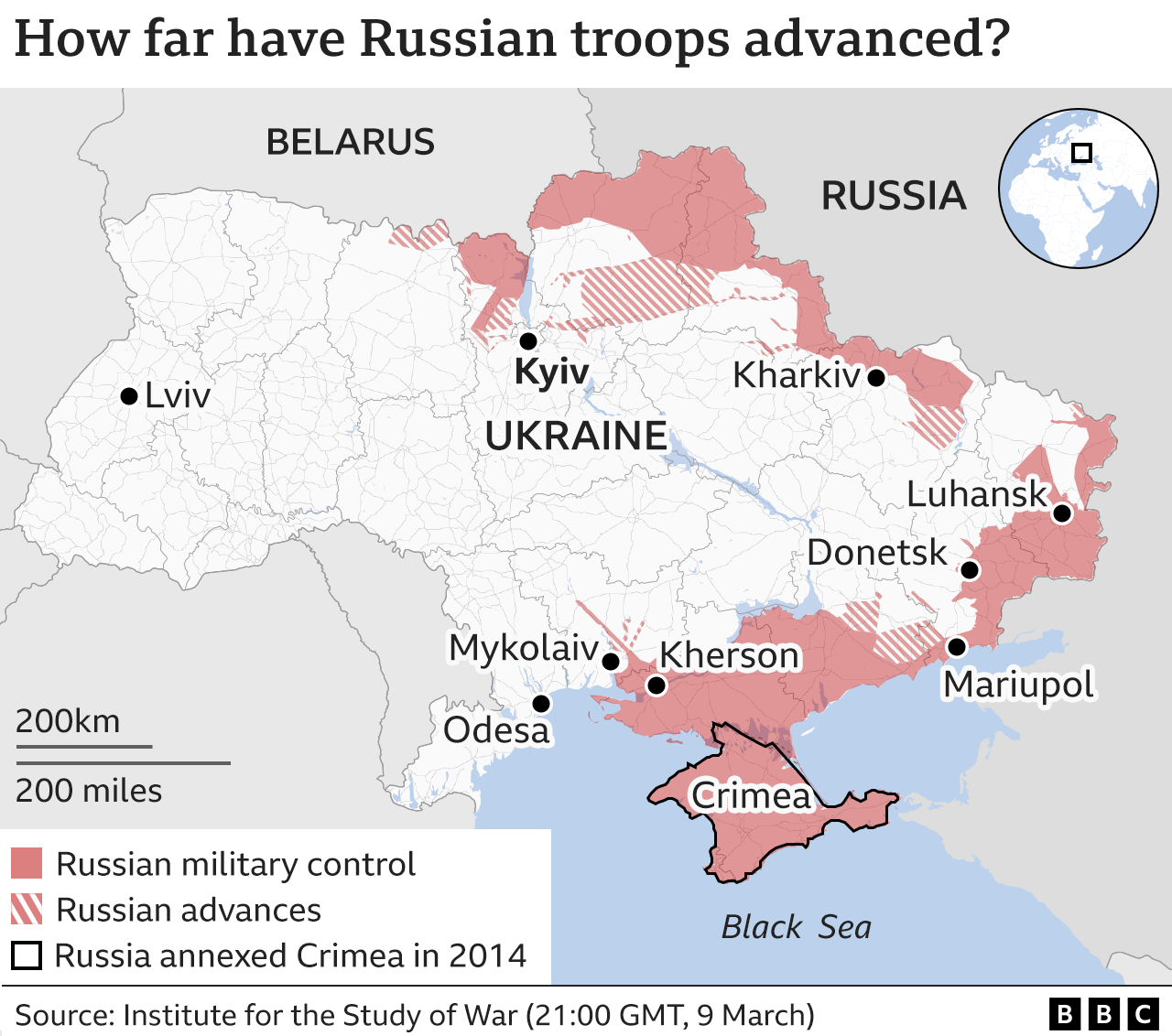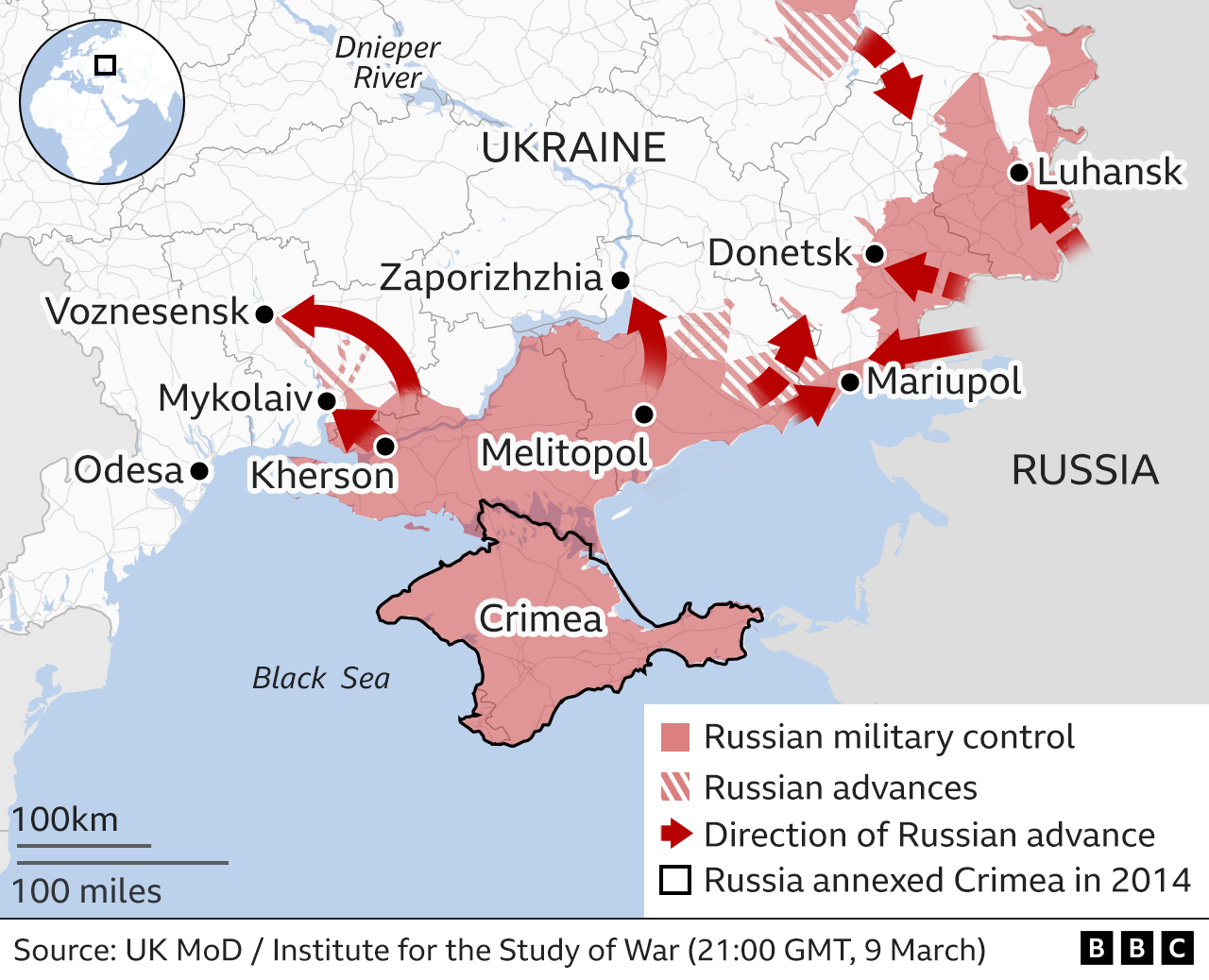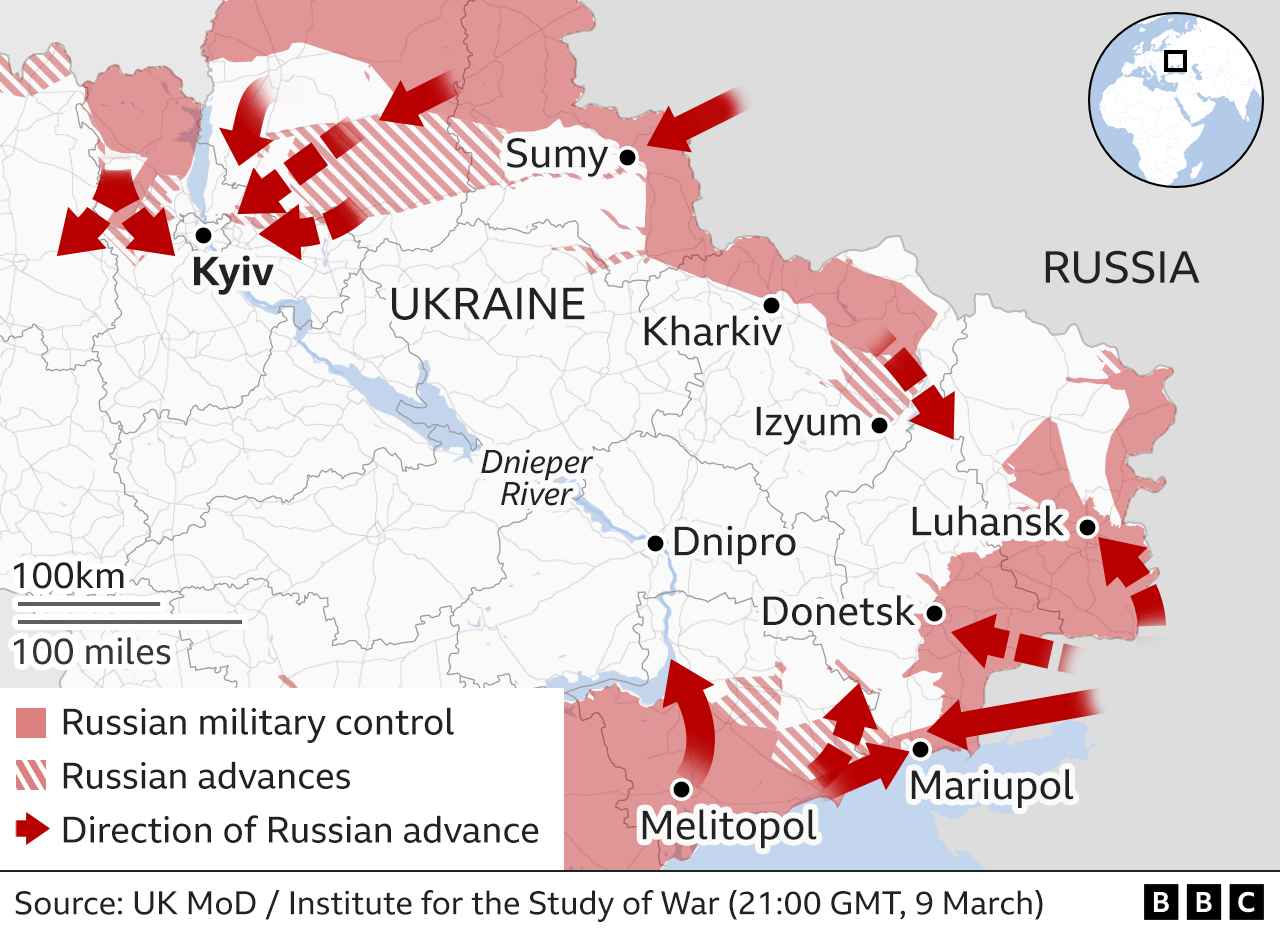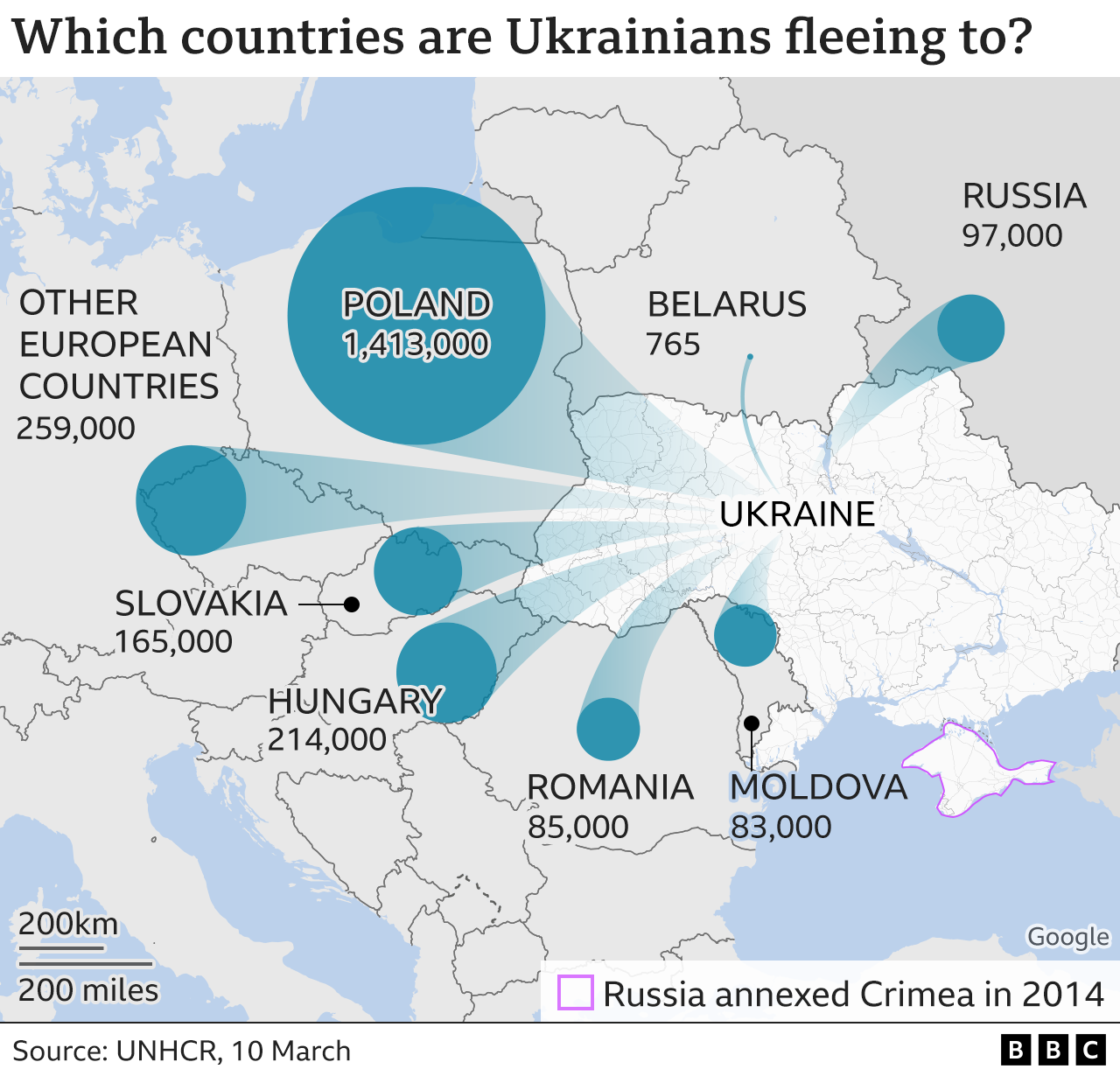Ukraine maps: At-a-glance guide to the Russia war
Russian troops are advancing towards Kyiv in the north of Ukraine - but they have been slowed down by attacks from Ukrainian forces and logistical problems.
Here are the latest developments on day 15 of the invasion:
- Ukraine's president says bombing of Mariupol hospital is a war crime
- The US warns Russia could be planning a chemical or biological attack
- Moscow has deployed conscript troops

Russia launched its attack in the early hours of 24 February from three main directions: north, south and east.
Targets all over the country have been attacked from land, sea and air.
Rapid gains by Russian forces in the south of the country have not been matched in the north, according to analysts.
Ukrainian troops have had "considerable success" in attacking Russian armoured columns, according to UK Ministry of Defence (MoD).
The fight for Kyiv
Russian forces are attempting to encircle the Ukrainian capital, with intense shelling in some areas.
To the west of the city, Russian operations have been smaller and more ad hoc than expected in recent days, according to the Institute for the Study of War (ISW).

Reports that Chechen units and Wagner group private military contractors are present may indicate that Russian forces are struggling to assemble sufficient conventional combat power, according to the ISW.
Retired British General, Sir Richard Barrons, says he believes an advance by Russian troops into the centre of Kyiv is a "distant prospect".
In Irpin, Russian forces have used "siege and starve" tactics, the ISW says, shelling civilian areas, cutting off electricity, food and water supplies.

War in Ukraine: More coverage
- LIVE: Latest updates from on the ground
- OCCUPIED CITY: 'We are not co-operating'
- RUSSIA MOTHERS: 'How do I get my soldier son back?'
- EXPLAINED: Why Putin has invaded Ukraine?
- IN DEPTH: Full coverage of the conflict

Slow Russian progress in the north
Russian troops initially made quick gains, advancing from Belarus down the west side of the Dnieper river via Chernobyl.
However, a large Russian column advancing on Kyiv has made little progress in recent days.
Many vehicles are believed to have run out of fuel or broken down.
There has also been intense fighting around Hostomel airport, which has changed hands several times.

Russian forces have continued efforts to take Chernihiv to the north east, but have yet to advance down the east bank of the Dnieper River.
To the east, reports suggest that Russian supply lines from the Sumy area are under considerable pressure.
Big Russian gains in the south
Russian forces have made rapid gains across the south of the country, advancing east and west from Crimea.
In the east, there is growing concern for tens of thousands of civilians trapped in the port city of Mariupol, which is encircled by Russian forces.
A Russian air strike on a maternity and children's hospital there is a war crime, Ukrainian President Volodymyr Zelensky says.
The UN says civilians in Mariupol, Kharkiv, Melitopol and elsewhere "desperately need aid, especially life-saving medical supplies".
People are trapped without food, running water or electricity and, in Mariupol, bodies have been buried in mass graves.

To the west, Russian forces around Kherson appear to be moving toward Mykolayiv and west toward Odesa, but could attempt to drive north east towards Zaporizhya, the ISW says.
Analysts say taking Odesa would be hugely significant, sealing off Ukraine from its coastline and securing a path for Russian forces from Donetsk to the Moldovan border.
Limited Russian advance in the east
Kharkiv, the second-largest city in Ukraine, continues to face intense aerial bombardment but Russia has not renewed attempts to take the city.
Artillery attacks on residential areas of Kharkiv are being investigated by UN prosecutors for possible war crimes.
Russian forces in the area have continued operations to the south east of the city, analysts say, with efforts launched to seize Izyum.

There are thought to be about 15,000 Russian-backed separatists in Donetsk and Luhansk in the south east, who may be helping Russian advance.
Ukraine believes the figure is higher.
Thousands flee across borders
Since the invasion began, more than two million people have fled Ukraine, according to the United Nations. It's the fastest-growing refugee crisis in Europe since World War Two.
Unicef, the UN children's agency, believes around half of them are children and young people.

By David Brown, Bella Hurrell, Dominic Bailey, Mike Hills, Lucy Rodgers, Paul Sargeant, Mark Bryson, Zoe Bartholomew, Sean Willmott, Sana Dionysiou, Joy Roxas, Gerry Fletcher and Jana Tauschinski.

About these maps
To indicate which parts of Ukraine are under control by Russian troops we are using daily assessments published by the Institute for the Study of War with the American Enterprise Institute's Critical Threats Project.
From 2 March this daily assessment differentiated between "Assessed Russian-controlled Ukrainian territory" and "Assessed Russian advances in Ukraine", the latter indicating areas where Russians are believed to have launched attacks from but which they do not control.
To show key areas where advances are taking place we are also using daily updates from the UK Ministry of Defence and BBC research. To show locations where there have been attacks or explosions we are using reports that have been verified by the BBC.
The situation in Ukraine is fast moving and it is likely there will be times when there have been changes not reflected in the maps.



No comments